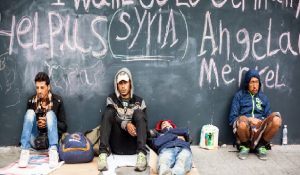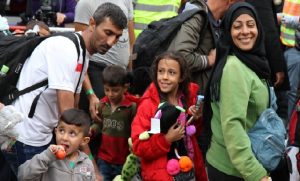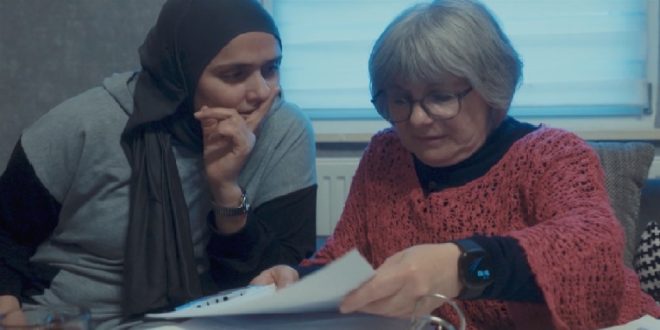23-02-2025
BERLIN: Germany is preparing for high-stakes elections, amid fears that far-right sentiment rising while migration policies sit at the centre of political debate.
In Cottbus, a city in eastern Brandenburg, the mood is tense as voters prepare to head to the polls with the rest of Germany on February 23 after Chancellor Olaf Scholz’s three-party coalition government led by his Social Democratic Party (SPD) collapsed last November.
 Outside the city centre, Jana Zistel, a German resident in Cottbus, is not sure which party to support, but is certain of her stance against the far-right Alternative for Germany (AfD) party, which has skyrocketed in popularity among eastern cities.
Outside the city centre, Jana Zistel, a German resident in Cottbus, is not sure which party to support, but is certain of her stance against the far-right Alternative for Germany (AfD) party, which has skyrocketed in popularity among eastern cities.
“Yes, I know many people are big supporters of the AfD here, but I just don’t understand it. Germans, too, are foreigners in other places,” she told media.
Known for its anti-migration views, the group’s success marks the first time in decades that a far-right party in Germany has gained such popularity.
According to the latest polls, the conservative Christian Democratic Union (CDU) is leading the polls, followed by AfD. Scholz’s centre-left Social Democrats (SPD) is in third place.
“The overall atmosphere is rather tense in Germany at the moment, and refugees do feel the changing attitude towards them,” said Judith Wiebke, a spokesperson for PRO ASYL, a German pro-immigration group.
Wiebke told media that fear in immigrant communities has been rising as the election nears.
“We get the feedback that in the Syrian community, there is new fear for their future in Germany, and the Afghan community (too,) is worried with regards to calls for regular deportation flights to Afghanistan, “she said.
The firewall crumbles?
Migration is a contentious topic in the European Union, with leaders of the 27-member bloc often squabbling over how to implement a unified migration and asylum policy.
 Germany has, however, maintained a relatively open-door policy for migrants. Former Chancellor Angela Merkel of the CDU/CSU party declared in 2015: “Wir schaffen das!” or “We can do it!” and welcomed hundreds of thousands of asylum seekers. But the CDU/CSU has since soured on immigration.
Germany has, however, maintained a relatively open-door policy for migrants. Former Chancellor Angela Merkel of the CDU/CSU party declared in 2015: “Wir schaffen das!” or “We can do it!” and welcomed hundreds of thousands of asylum seekers. But the CDU/CSU has since soured on immigration.
Chancellor Scholz’s government has, since 2022, eased the process of acquiring German residency and citizenship, easing the path for migrants and refugees and prompting criticism from political opponents.
CDU/CSU party leader Friedrich Merz called the policies “misguided”.
On the campaign trail, he blamed those policies for a recent spate of deadly attacks that has rocked the country and killed many people. In the latest case last week, a two-year-old girl and her mother were killed in Munich when a car rammed into a crowd. Nationals from Afghanistan, Syria and Saudi Arabia have been arrested for the killings.
In January, following one such attack, Merz proposed a non-binding resolution in the German Parliament to turn back more asylum seekers at the borders. It passed, but with the backing of the AfD. That shattered a seemingly impenetrable “firewall” policy that had seen parties refuse to work with the far right for decades.
Parliament narrowly rejected Merz’s binding version of the migration bill but shocked opposition leaders accused him in impassioned speeches of breaking the firewall. Even Merkel, the former chancellor who had otherwise been absent from politics, condemned her fellow CDU colleague. Thousands of people across Germany took to the streets in protest, calling for an AfD ban. (Int’l News Desk)
 Pressmediaofindia
Pressmediaofindia




